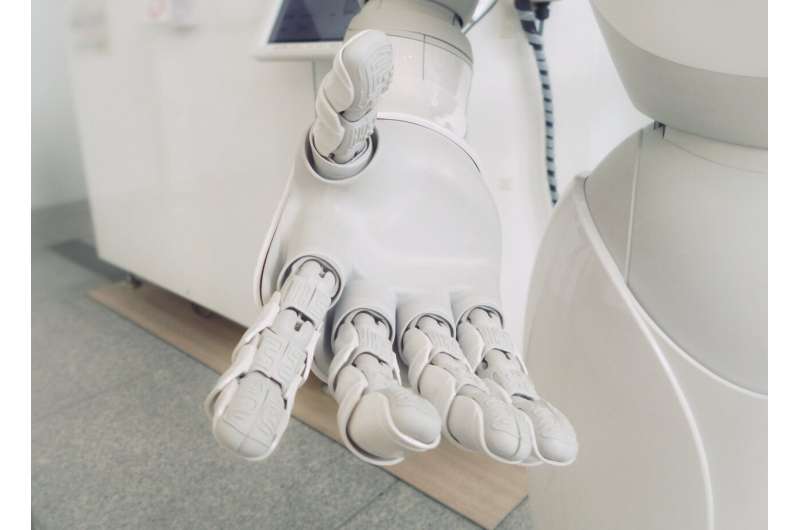
Intelligent sensing and tele-presence robotic technology, enabling health practitioners to remotely assess a person’s physical and cognitive health from anywhere in the world, is being pioneered in research co-led at the University of Strathclyde.
The technology could aid cost-effective diagnosis, more regular monitoring and health assessments alongside assistance, especially for people living with conditions such as Alzheimer’s disease and other cognitive impairments.
The system was demonstrated for the first time to the UK Government Minister, Iain Stewart during a visit to the construction site of the National Robotarium, hosted at Heriot-Watt University, which is co-leading the research with Strathclyde.
Dr. Mario Parra Rodriguez, a senior lecturer in Strathclyde’s School of Psychological Sciences & Health, said: “The experience of inhabiting a distant robot through which I can remotely guide, assess, and support vulnerable adults affected by devastating conditions such as Alzheimer’s disease, grants me confidence that challenges we are currently experiencing to mitigate the impact of such diseases will soon be overcome through revolutionary technologies.”
“The collaboration with the National Robotarium, hosted by Heriot-Watt University, is combining experience from various disciplines to deliver technologies that can address the ever changing needs of people affected by dementia.”
Combining the system with a tele-presence robot brings two major advances; robots can be equipped with powerful sensors and can also operate in a semi-autonomous mode, enriching the capability of the system to deliver quality data, 24 hours a day, seven days a week.
Also, tele-presence robots keep clinicians and carers in the loop. These professionals can benefit from the data provided by the project’s intelligent sensing system, but they can also control the robot directly, over the Internet, to interact with the individual under their care. They can see through the eyes of the robot, move around the room or between rooms and operate its arms and hands to carry out more complex assessment protocols. They can also respond to emergencies and provide assistance when needed.
Mr Stewart said: “It was fascinating to visit the National Robotarium and see first-hand how virtual teleportation technology could revolutionize healthcare and assisted living.
“Backed by £21 million UK Government City Region Deal funding, this cutting-edge research center is a world leader for robotics and AI, bringing jobs and investment to the area.”
Researchers at the Robotarium will launch further co-design activities with clinicians and potential users of the technology, before running a pilot study in collaboration with Blackwood Homes and Care, using a robot embedded in the company’s care facilities.
Colin Foskett, Head of Innovation at Blackwood Homes and Care said: “Blackwood is always looking for solutions that help our customers to live more independently whilst promoting choice and control for the individual. Robotics has the potential to improve independent living, provide new levels of support and integrate with our digital housing and care system CleverCogs.
Source: Read Full Article
